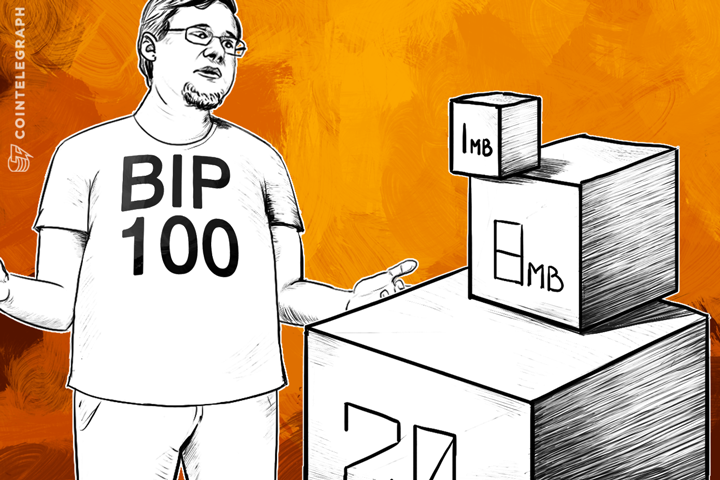Both of Bitcoin's major payment processors — BitPay and Coinbase — have publicly defended an increase in the block size limit as proposed by Bitcoin core developer Gavin Andresen.
While many payment processors refrained from commenting directly to Cointelegraph on the block size debate, including BitPay and Coinbase, the available information suggests that the industry leaders will back an increase.
Two payment processors that did respond to our inquiry, Coinkite and BitPagos, have indicated they support alternative solutions, such as core developer Jeff Garzik's BIP 100.
Big Two
Although precise data on the bitcoin payments industry is scarcely available, it is commonly assumed that BitPay and Coinbase dominate a lion’s share of the market. Both companies have attracted VC investments worth tens of million dollars, while the two claim to have enrolled a combined 100,000 merchants, including names as Microsoft, Dell, PayPal and more.
Bitcoin's first and presumably biggest payment processor, BitPay, has expressed support for Andresen's proposed block size limit increase through a tweet by its CEO Stephen Pair. Notably, Pair added that the increase to 20 MB should optimistically “be the last and only time block size needs to increase.”
Agreed (but optimistic this will be the last and only time block size needs to increase) t.co/o3kMtEkm0x
— Stephen Pair (@spair) May 4, 2015
Similarly, Coinbase expressed support for the proposed block size increase through a company tweet, as well as a series of tweets by its CEO, Brian Armstrong, as previously covered in our recent article regarding the stances of web wallets on the issue.
Lets plan for success. Coinbase supports increasing the maximum block size t.co/JoP4ATw4ux
— Coinbase (@coinbase) May 6, 2015
Alternatives
A more critical tone was voiced by Coinkite — as covered in our recent article regarding the stances of web wallet providers stances in the debate — and BitPagos, a Bitcoin payment processor with a specific focus on Latin America. Both payment processors have said to prefer other solutions for scaling Bitcoin's use.
Although BitPagos did indicate supporting an increase of the block size limit from 1 MB, the payment processor expressed some doubt regarding Andresen's proposal to raise the maximum block size to 20 MB by next year. (It should be noted that it does seem like Andresen might be willing to accept a compromise of 8 MB.) Speaking to Cointelegraph, BitPagos CEO Sebastian Serrano said:
“BitPagos supports the increase in the block size. It is important to maintain the Bitcoin network reliable and its value as a global transfer system.”
Instead of an increase to 20 MB, or a switch to Bitcoin XT in order to allow for bigger blocks, however, Serrano indicated he preferred Jeff Garzik's BIP 100. This proposal would get rid of any static block size limit, and instead allow Bitcoin miners to determine the block size by voting with their hashing power. Serrano said:
“We are more in favor of the draft proposal from Jeff Garzik of a soft fork mechanism which will be less radical and provide a path to a market mechanism to define the best block size.”
Coinkite, too, has indicated to favor Garzik's BIP 100 over either a maximum block size jump to 20 MB, or the alternative Bitcoin XT solution to allow for bigger blocks. Speaking to Cointelegraph, Coinkite Founder and CTO Peter D. Gray said:
“BIP 100 is a reasonable proposal, but it must be implemented by Bitcoin Core and not Bitcoin XT.”
Cointelegraph also reached out to GoCoin, Bitnet, Payza, Stripe and OKPay, but received no responses by the time of publication. Coinify did respond to our inquiry, but said they had no official stance on the issue.



